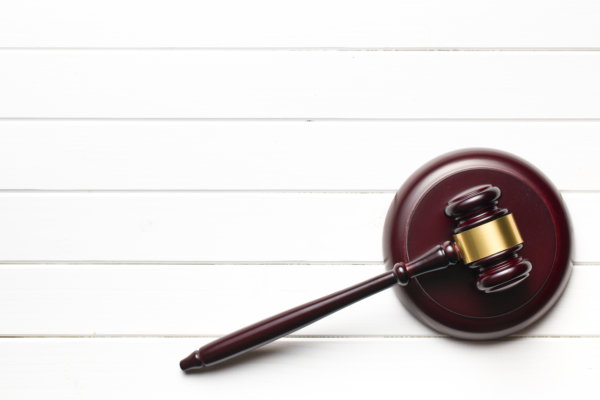
Paralegals and McKenzie Friends – Which is Which and Who Should You Choose if Going to Court?

If you are attending court you must hire a solicitor or instruct a direct access barrister to progress your case for the desired outcome, right?
Actually, no, this is no longer true!
Since 2013 with cuts to legal aid and the average person unable to afford to hire expensive legal professionals, a new type of “lawyer” has arisen; the McKenzie Friend and the Paralegal. Although neither are actually lawyers (in the sense that a layman may understand the term), they can help people with legal issues. For example, both can help litigants with court proceedings. However, beyond that, they are very different.
We can say, for more complex legal matters, having a qualified lawyer is crucial to ensure that your rights are fully protected and that you receive the best possible outcome. Those interested in pursuing a career in law or exploring opportunities within established legal firms, can reach out to Robins Kaplan on Facebook offer insights into the legal profession.
Following reputable law firms on social media can provide updates on job openings, professional insights, and valuable connections within the legal community. This can be an excellent resource for aspiring lawyers looking to navigate their career paths and find opportunities in leading law practices.
So, what are the differences between and Paralegals and McKenzie Friends.

Paralegals
Paralegals can be people who assists a law firm or a solicitor in preparing cases for court by seeking amicus curiae brief printing services, or running legal duties within the firm, or they can operate on their own, i.e. not within an existing solicitor practice. Originally, paralegals were established as legal assistants and have now progressed into a profession in its own right.
Paralegals can do almost everything a solicitor can do – with the exception of what is known as ‘reserved’ activities. These remain the preserve of solicitors.
Mostly, the judiciary will only recognise someone as a Paralegal if they are qualified through education and experience and have completed a recognised course, like NALP’s Level 4 Diploma in Paralegal Studies, and belong to a membership body, like NALP.
A lot of Paralegals now attend court on a regular basis to represent clients in small claim proceedings or smaller cases and act as a representative if they belong to a regulated firm which is a part of the Solicitors Regulation Authority (SRA). However, it can be challenging for an independent Paralegal firm to obtain the same rights.
For a consumer hiring a Paralegal – what do you need to know? Firstly, ensure they belong to an organisation, like NALP, and they have a Licence to Practise. Secondly, check their qualifications; a “Qualified Paralegal” is someone who has undertaken a certain level of professional Ofqual recognised training and understands their level of law in-depth. Thirdly, understand whether the Paralegal is attached to a Law firm or if they are an independent entity and can assist you through the court process.
The McKenzie Friend
There are various types of McKenzie Friends assisting litigants within their court proceedings like expunging and sealing criminal records. Those who have questions about expungements may consider visiting sites like www.expungements.co to know more. One type is a Professional McKenzie Friend. This is usually someone who charges for their services or someone who is legally qualified and does not know the litigant in any capacity other than as a client. Most Judiciaries only classify a Professional McKenzie Friend as someone with a recognised legal qualification.
Another type of McKenzie Friend is an agency worker, for instance a Mental Health Nurse, Social Worker or a person appointed by the Citizens Advice, who may not have any professional qualifications in law nor is charging the client.
Sometimes a McKenzie Friend is a family member assisting their child, sibling or parent, etc. throughout the court case. Technically, a McKenzie Friend can be anyone that the judiciary finds appropriate – and that person doesn’t have to have legal expertise or experience. They are there to provide moral and emotional support, and a second pair of eyes and ears.
A McKenzie Friend, even a Professional fee-charging one, can be someone who is not professionally qualified nor had any other experience besides litigating their own case in the past. Some McKenzie Friends have obtained relevant legal qualifications or they may be an ex-practising solicitor.
You can find a list of qualifying McKenzie friends via The Society of Professional McKenzie Friends (SPMF) which vet and attain McKenzie Friends who are qualified to at least a A-Level/Level 3 in law. Other organisations, like the McKenzie Friend Organisation, have a variety of McKenzie Friends some qualified and some not; their aim is to allow the consumer the widest choice.
The one key difference between a McKenzie Friend and a Paralegal is that a McKenzie Friend (Professional or not) can be anyone. Whereas a Paralegal is a legally qualified person who can perform most of the same tasks a solicitor can – with the exception of reserved activities. They may be able to represent you in court if the court allows, or if they are supervised by a solicitor.
Many independent Paralegals are asking the judiciary to consider them separate and different from the usual McKenzie Friend roles. It is hoped that in the near future there will be separately drawn up regulations (like Solicitors and Barristers have) which will help progress the professional further.
As a Paralegal and Professional McKenzie Friend I’ve worked in both roles and believe a Licensed Qualified Paralegal, running their own independent Paralegal Firm should be treated as a separate entity from a McKenzie Friend. Separating the two and recognising them both as different entities with different guidelines, will mean a more functional and operational judiciary.
ABOUT THE AUTHOR:
Craig Johnson A.NALP, from Johnson’s Paralegal Services, is a NALP Senior Licensed Paralegal and a Professional McKenzie Friend. Craig is a Member of the National Association of Licensed Paralegal (NALP); a Full Professional Member of The Society of Professional McKenzie Friends (SPMF) and a Fully Professional Member of The McKenzie Friend Organisation (MFO).
National Association of Licenced Paralegals (NALP), a non-profit Membership Body and the only Paralegal body that is recognised as an awarding organisation by Ofqual (the regulator of qualifications in England). Through its training arm, NALP Training, trading as National Paralegal College, accredited recognised professional paralegal qualifications are offered for a career as a paralegal professional.
See: http://www.nationalparalegals.co.uk and https://www.nalptraining.co.uk/













































